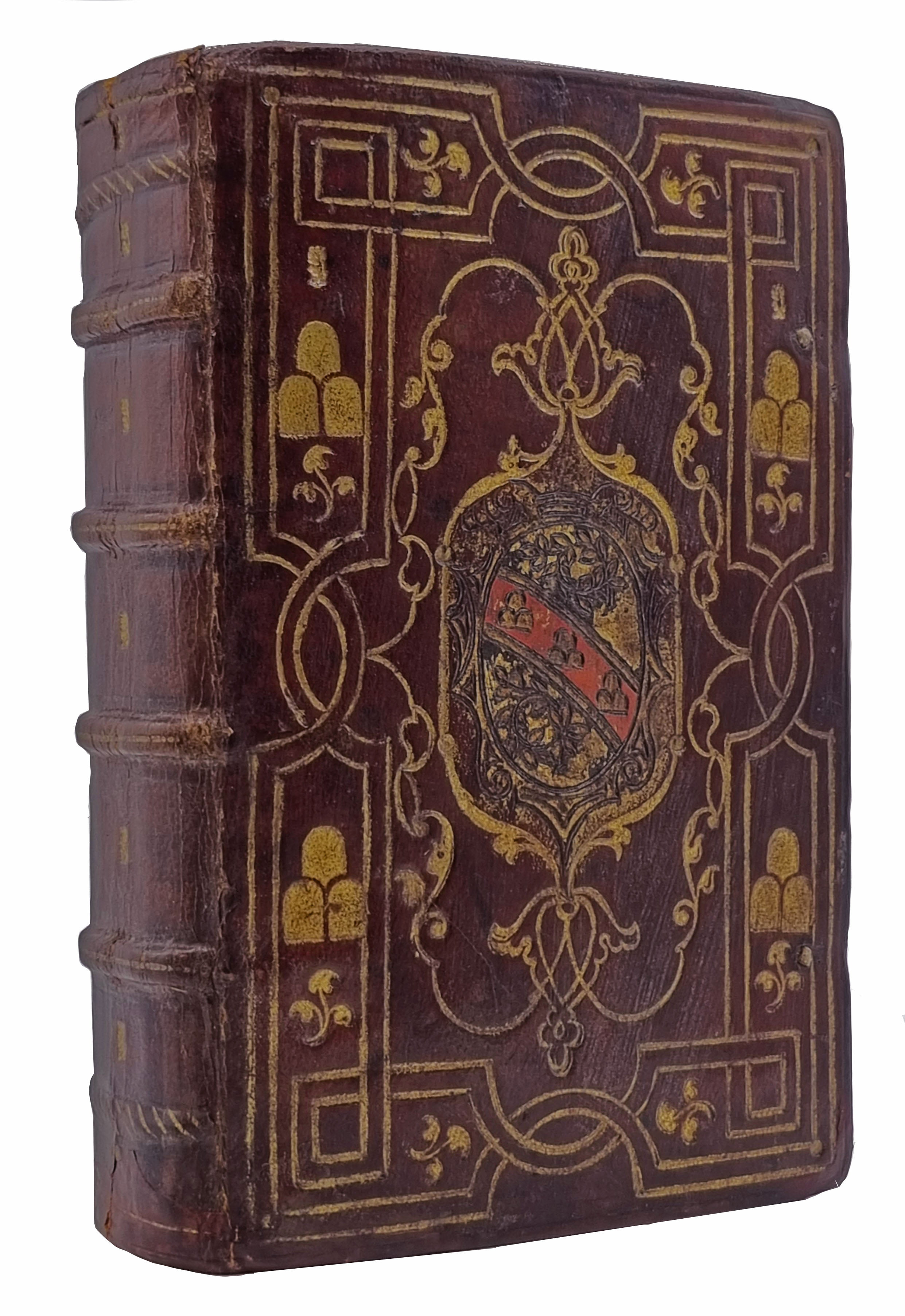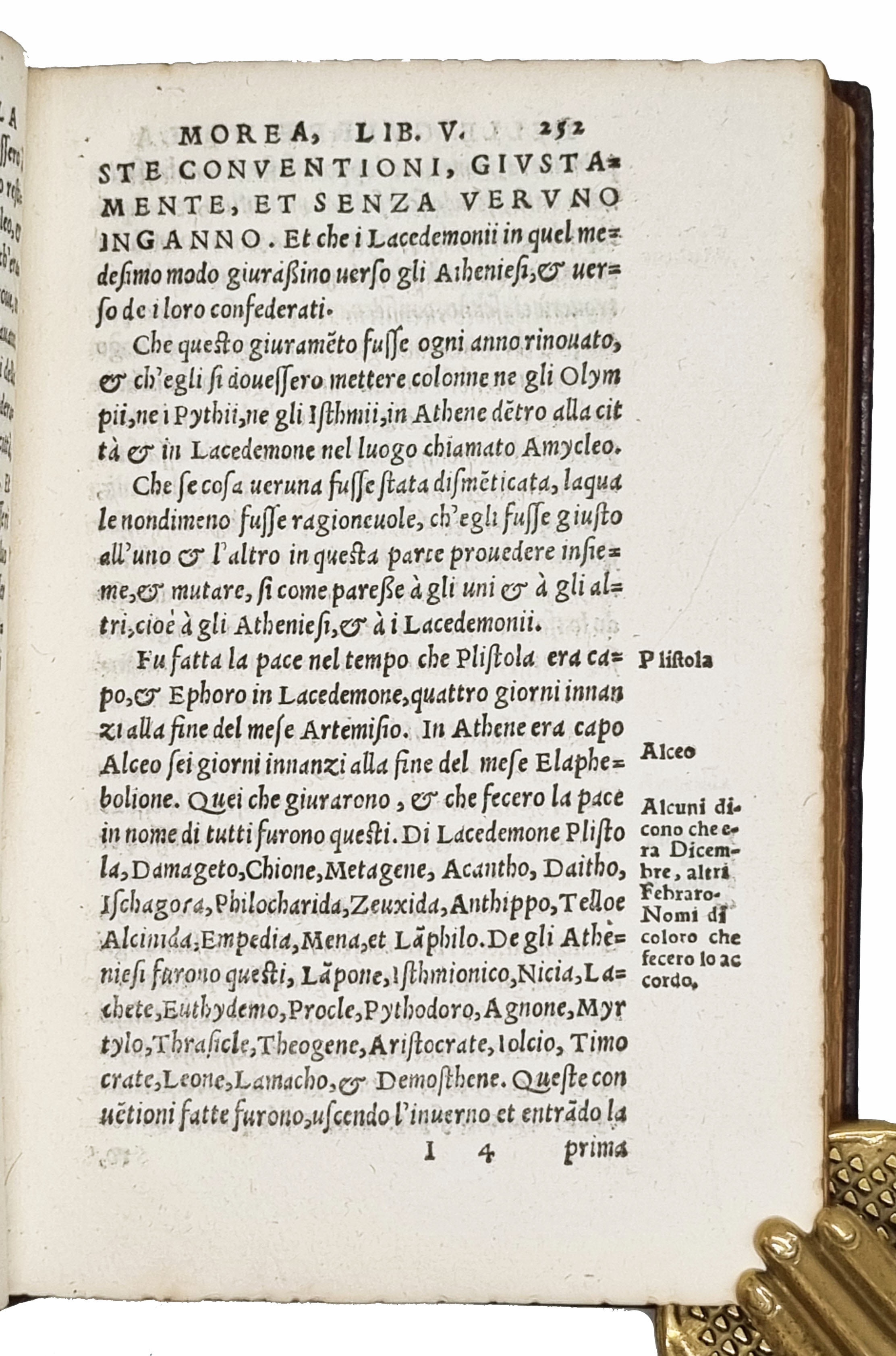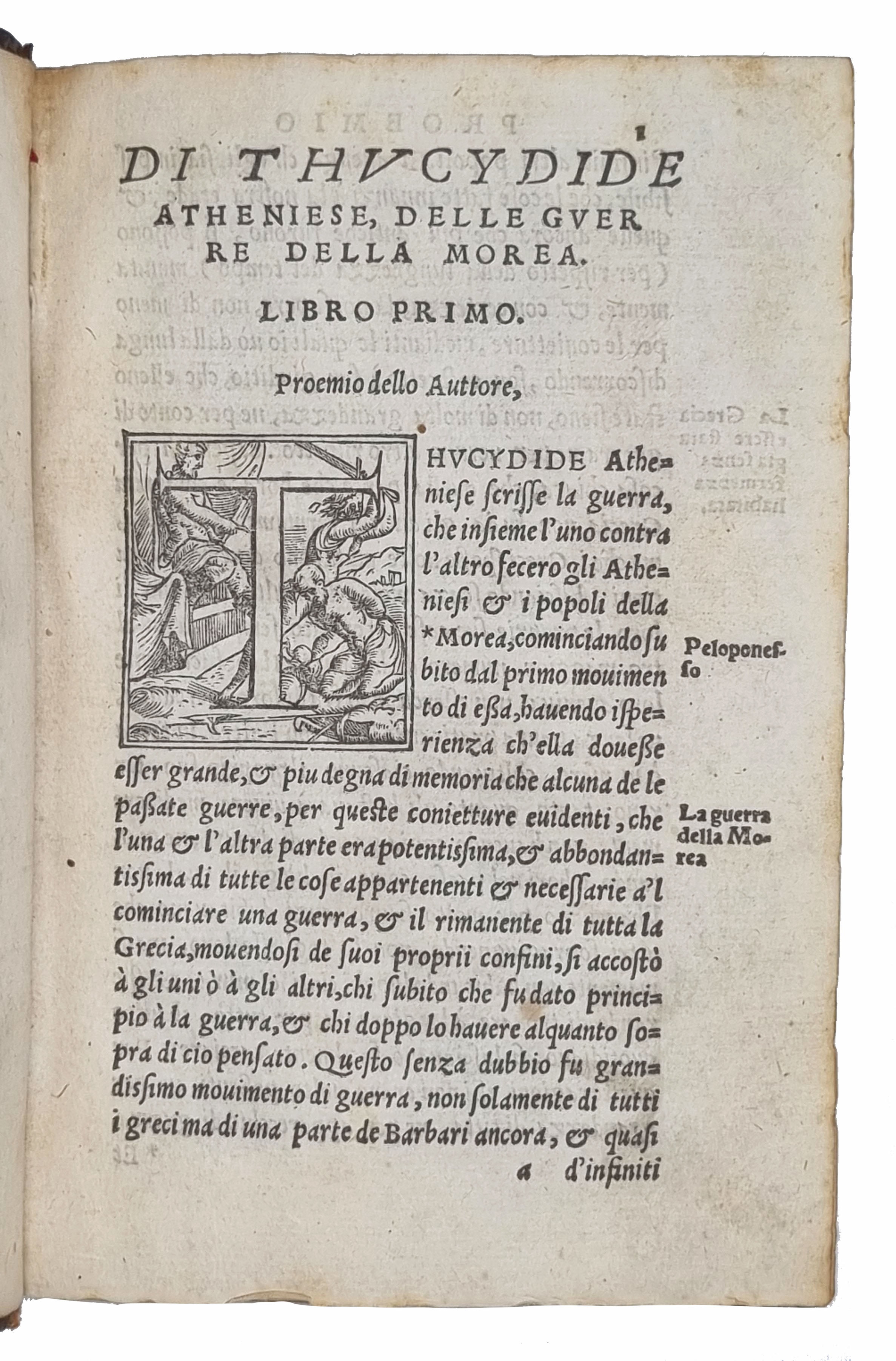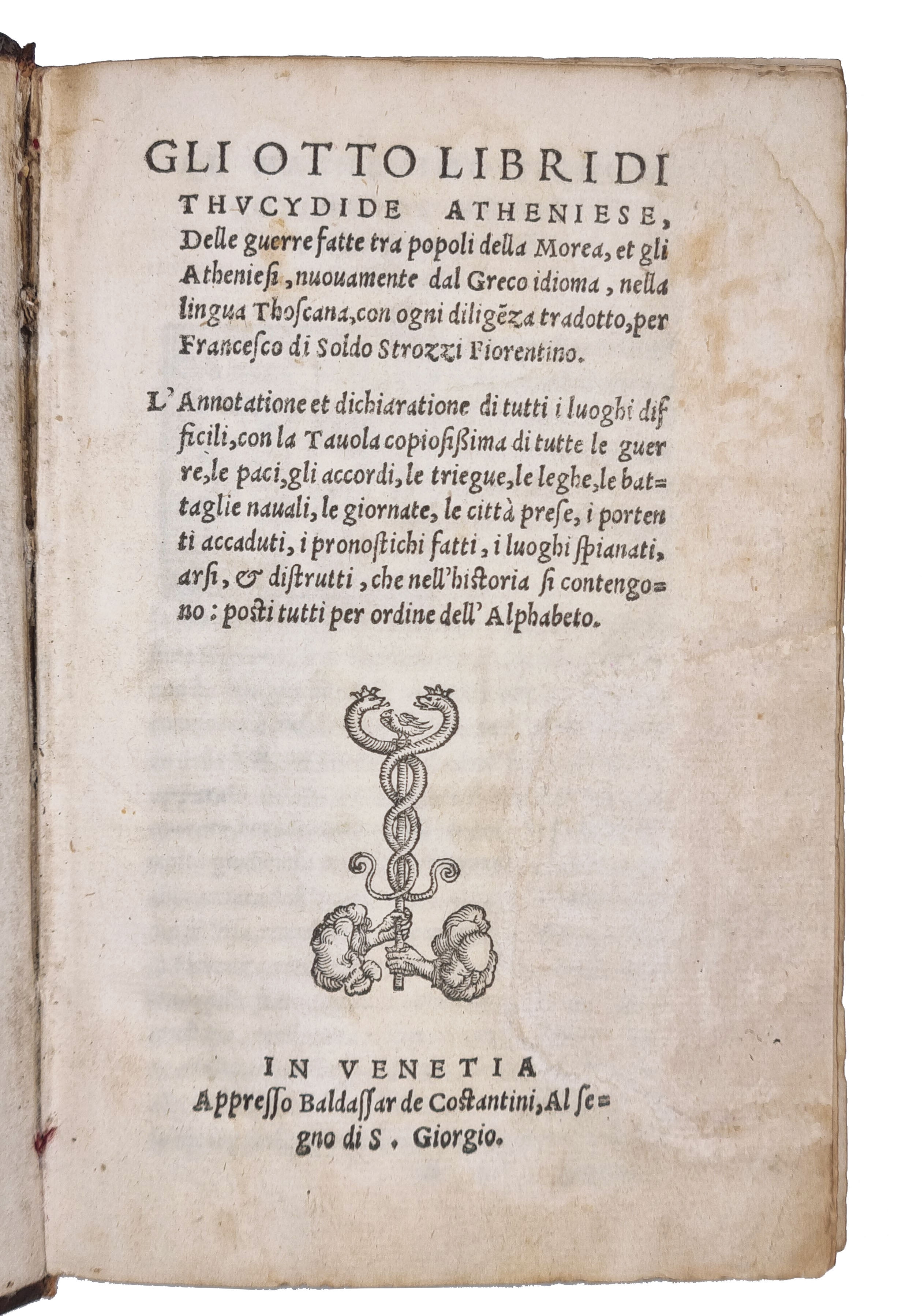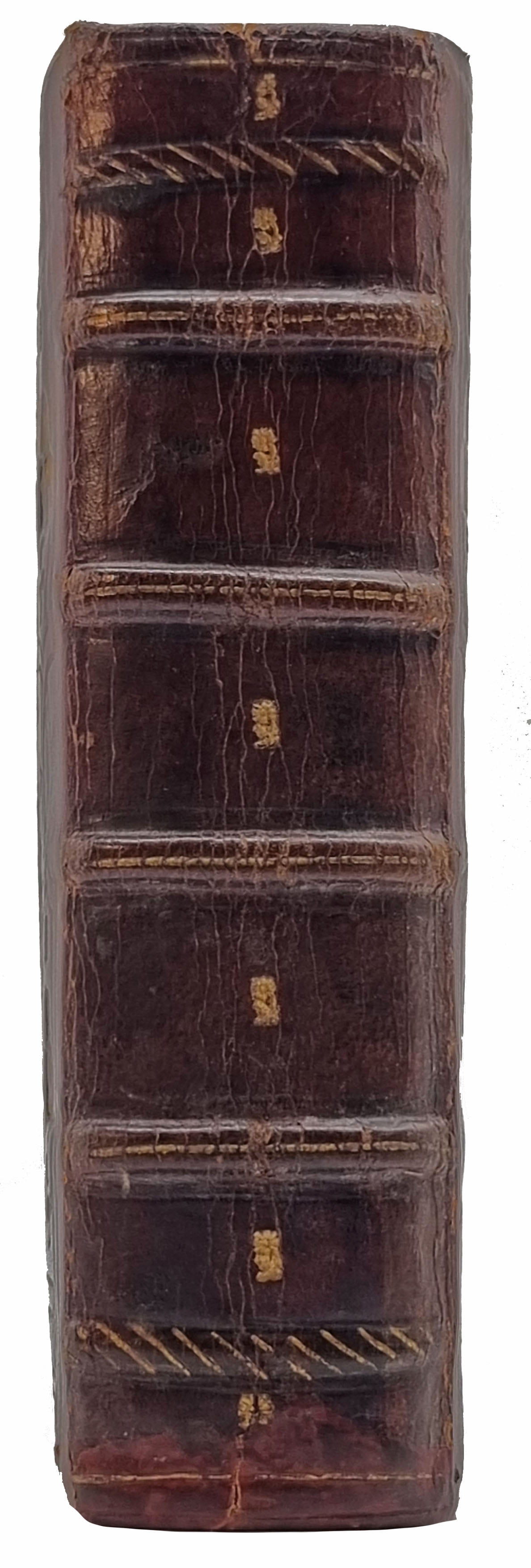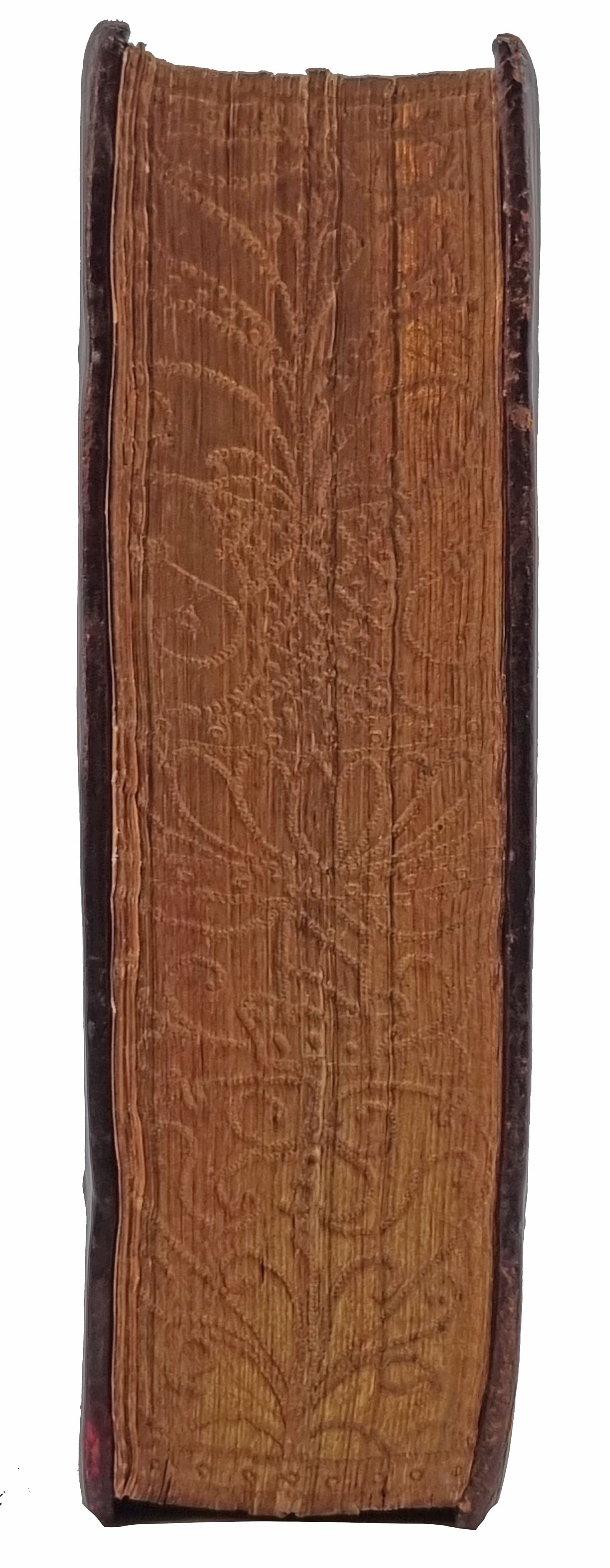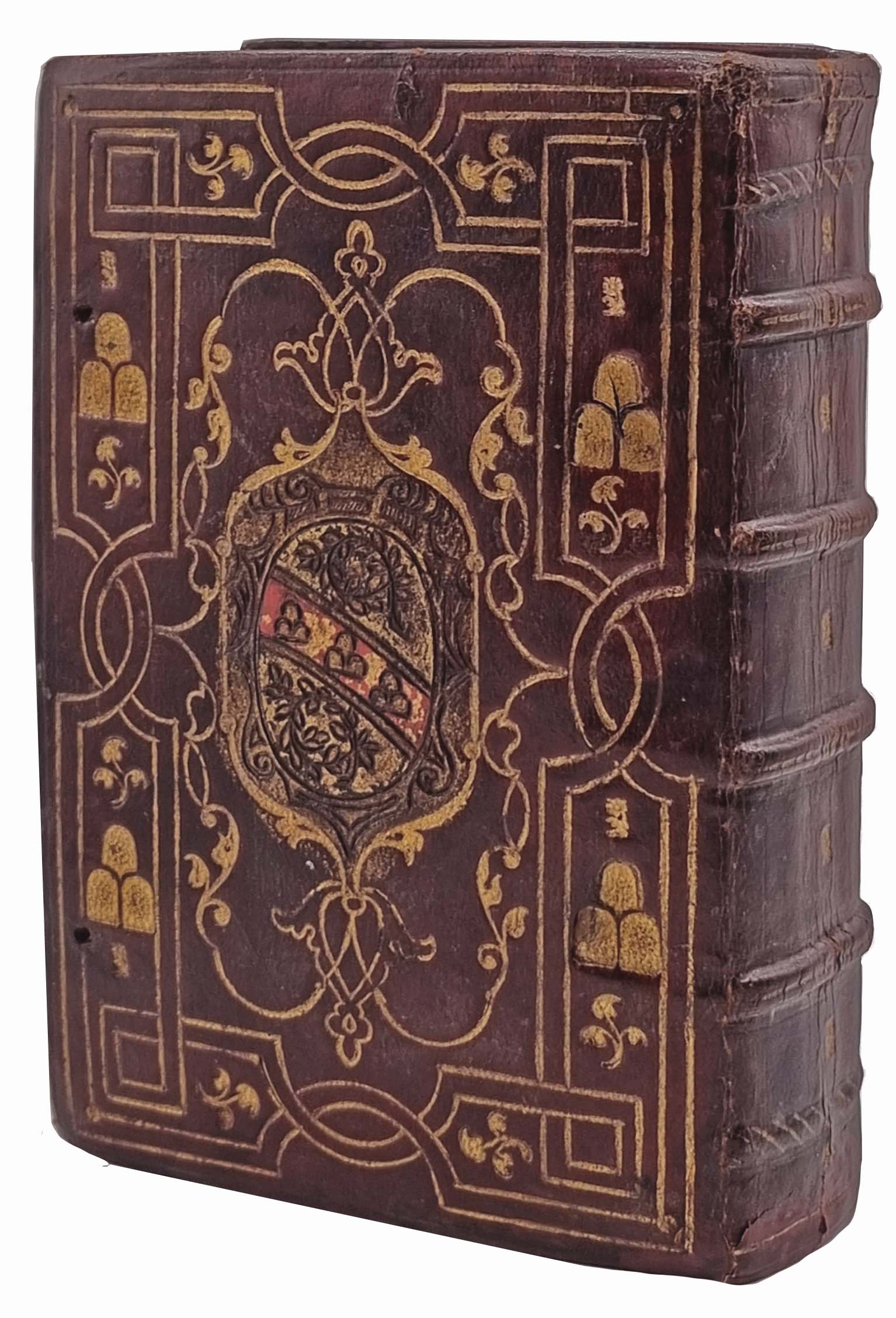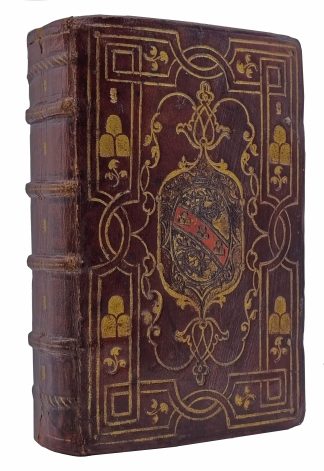THUCYDIDES
BY JEAN PICARD FOR THE CIOCCHI DEL MONTE
Gli otto libri di Thucydide atheniese, diligenza tradotto, per Francesco di Soldo Strozzi fiorentino.
Venice, appresso Baldassar de Costantini, [1545]£17,500.00
FIRST EDITION thus. 8vo. ff. (xii), 440. [* , ** , a-z A-2I ] Italic letter, side notes in Roman. Small woodcut printer’s device on title, fine historiated woodcut initials at the beginning of each book, engraved bookplate of Maurice Burrus on fly. Light age yellowing, blank part of the title torn and restored, the very rare mark or spot. A very good copy, crisp and clean in stunning contemporary French calf from the atelier of Jean Picard, covers with a double gilt ruled interlaced strapwork outer border, the centre worked with gilt gauges and leaf tools around a central oval with the arms of the Ciocchi del Monte family at centre, their ‘three mount’ cipher gilt stamped in border (both probably added at a slightly later date), spine with gilt and blind ruled raised bands, small flower tool gilt at centres, all edges gilt and richly gauffered, very expert repair to tail of spine.
Rare first edition of the first Italian translation of Thucydides from the original Greek into ‘lingua Thoscana’ by Francesco di Soldo Strozzi, in a very fine armorial binding from the atelier of Jean Picard in Paris. This edition was published concurrently with another by Valgrisi with whom Costantini later became associated. It is dedicated to Cosimo de Medici. Jean Picard, one of the most important French binders of the C16th, made many bindings for Grolier and the greatest collectors of the day. This binding combines the use of interlaced strapwork borders and central scrollwork typical of Picard’s bindings; See BL shelfmark c27d2, and c19b6 (a binding made for Grolier) for similar examples. The scrolled leaf tool used in the centre of this binding is identical to one used by Picard. However Cyclopedia.org attribute another tool used on this binding, the small flower tool, to the ‘Imitative’ binder who copied, nearly identically, many of Picard’s tools. See BL shelfmark c62a1 for another binding which uses this flower tool made circa 1540. The central arms of the Ciocchi del Monte family seem to have been added at a slightly later date with the ‘three mountains’ cipher gilt stamped in the border. The Italian connection to this binding is intriguing as Jean Picard, as well as being a binder, was also an agent in Paris for the Aldine press, until he fell into debt and was forced to flee in 1548.
Thucydides has been described as the father of ‘scientific history’ because of his strict standards of evidence gathering and analysis of events in terms of cause and effect. He has also been called the father of the school of political realism viewing relations between states as based more on might than right. His text is still studied in military colleges throughout the world. Thucydides also makes the interesting, if somewhat cynical, analysis of human nature in explaining human behaviour in the context of wars, plagues and all sorts of disasters. Viewed in the highest regard by subsequent Greek historians, then ignored throughout the Middle Ages, Thucydides had some influence on Machiavelli, but much more on Hobbes who translated him, and was idolised by Schiller, Schlegel, Nietzsche, Macauley and von Ranke. Woodrow Wilson read him on the way to the Versailles conference, and Thucydides’ influence was increasingly felt in international relations during the period of the cold war. The Peleponnesian War of which Thucydides wrote was an epic 27 year struggle for supremacy between Athens and Sparta and their respective allies. It probably continued after Thucydides’ death. Thucydides is the political historian par excellence, a meticulous recorder of public events, in which he had fought and from which he was never far removed. He assiduously researched written documents and personally interviewed eye-witnesses whose testimonies he wrote up into somewhat stylistic speeches.
A stunning French Renaissance binding.
This edition not in BM STC It. C16th. Adams, T-684.In stock


